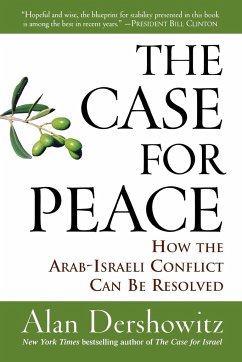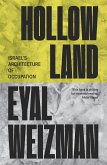In "The Case for Peace," Dershowitz identifies twelve geopolitical barriers to peace between Israel and Palestine-and explains how to move around them and push the process forward. From the division of Jerusalem and Israeli counterterrorism measures to the security fence and the Iranian nuclear threat, his analyses are clear-headed, well-argued, and sure to be controversial. According to Dershowitz, achieving a lasting peace will require more than tough-minded negotiations between Israelis and Palestinians. In academia, Europe, the UN, and the Arab world, Israel-bashing and anti-Semitism have reached new heights, despite the recent Israeli-Palestinian movement toward peace. Surveying this outpouring of vilification, Dershowitz deconstructs the smear tactics used by Israel-haters and shows how this kind of anti-Israel McCarthyism is aimed at scuttling any real chance of peace.
"Dershowitz offers a pragmatic proposal rooted in the lessons of the past and the opportunities of the present. Hopeful and wise, the blueprint for stability presented in this book is among the best in recent years." -President Bill Clinton In this important book, Harvard Law School professor Alan Dershowitz sets out a practical, realistic road map for Arab-Israeli peace, rigorously analyzing all the tough issues surrounding the conflict and pointing the way toward a secure and equitable two-state solution. From the division of Jerusalem and Israeli counterterrorism measures to the security fence and the Iranian nuclear threat, he identifies twelve geopolitical barriers to peace, explaining how to move around them and push the process forward. In a companion Web site, Dershowitz reflects on the new dynamics in the Middle East in the wake of Ariel Sharon's illness and the Hamas victory, making this provocative but clearheaded blueprint for peace more vital than ever. For new insight by Alan Dershowitz on the Arab-Israeli conflict visit www.wiley.com/go/dershowitz "Alan Dershowitz has been on the forefront of making the case for Israel and against terrorism. Now he turns his attention to making the case for peace. He understands, as I do, how difficult it is to achieve peace with security. He confronts these difficulties with insight and with the benefit of years of experience." -Ariel Sharon "Alan Dershowitz's The Case for Peace is a sober, pragmatic, and yet enthusiastic voice for peace between Israel and Palestine, to be based not on sentimentalist wishful thinking and not on dogmatic theorizing but on realism and empathy. I read it with thrill." -Amos Oz
"Dershowitz offers a pragmatic proposal rooted in the lessons of the past and the opportunities of the present. Hopeful and wise, the blueprint for stability presented in this book is among the best in recent years." -President Bill Clinton In this important book, Harvard Law School professor Alan Dershowitz sets out a practical, realistic road map for Arab-Israeli peace, rigorously analyzing all the tough issues surrounding the conflict and pointing the way toward a secure and equitable two-state solution. From the division of Jerusalem and Israeli counterterrorism measures to the security fence and the Iranian nuclear threat, he identifies twelve geopolitical barriers to peace, explaining how to move around them and push the process forward. In a companion Web site, Dershowitz reflects on the new dynamics in the Middle East in the wake of Ariel Sharon's illness and the Hamas victory, making this provocative but clearheaded blueprint for peace more vital than ever. For new insight by Alan Dershowitz on the Arab-Israeli conflict visit www.wiley.com/go/dershowitz "Alan Dershowitz has been on the forefront of making the case for Israel and against terrorism. Now he turns his attention to making the case for peace. He understands, as I do, how difficult it is to achieve peace with security. He confronts these difficulties with insight and with the benefit of years of experience." -Ariel Sharon "Alan Dershowitz's The Case for Peace is a sober, pragmatic, and yet enthusiastic voice for peace between Israel and Palestine, to be based not on sentimentalist wishful thinking and not on dogmatic theorizing but on realism and empathy. I read it with thrill." -Amos Oz
"ALAN Dershowitz has a lovely vision of Middle East peace, imagining democratic Israel and a democratic Palestine prospering together. Harvard Law's celebrity professor advocates a two-state solution, creating Palestine out of the territories Israel won in the 1967 war. Dershowitz believes two viable states with secure borders and stable political cultures can emerge from one of the world's most troubled pieces of real estate. Invoking history, justice, reason and the rule of law, he analyzes the problems, seeking mutually agreeable solutions...." (The New York Post, August 28, 2005)








